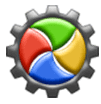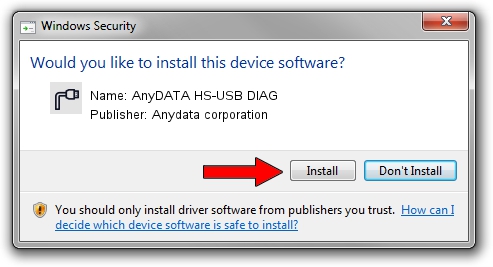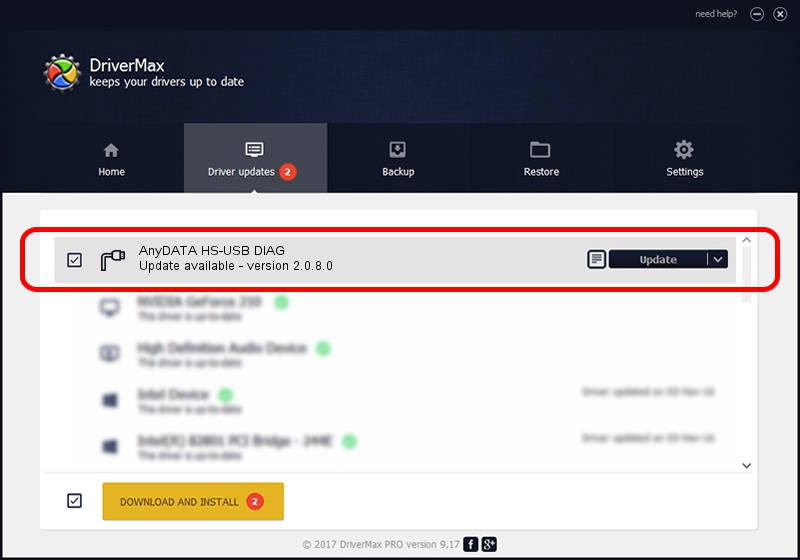
Advertising seems to be blocked by your browser.
The ads help us provide this software and web site to you for free.
Please support our project by allowing our site to show ads.
Home /
Manufacturers /
Anydata corporation /
AnyDATA HS-USB DIAG /
USB/VID_16D5&PID_9696&MI_01 /
2.0.8.0 Dec 03, 2010
Driver for Anydata corporation AnyDATA HS-USB DIAG - downloading and installing it
AnyDATA HS-USB DIAG is a Ports device. This Windows driver was developed by Anydata corporation. The hardware id of this driver is USB/VID_16D5&PID_9696&MI_01.
1. Anydata corporation AnyDATA HS-USB DIAG driver - how to install it manually
- You can download from the link below the driver installer file for the Anydata corporation AnyDATA HS-USB DIAG driver. The archive contains version 2.0.8.0 released on 2010-12-03 of the driver.
- Start the driver installer file from a user account with the highest privileges (rights). If your UAC (User Access Control) is started please accept of the driver and run the setup with administrative rights.
- Go through the driver setup wizard, which will guide you; it should be quite easy to follow. The driver setup wizard will analyze your computer and will install the right driver.
- When the operation finishes shutdown and restart your PC in order to use the updated driver. It is as simple as that to install a Windows driver!
This driver was rated with an average of 3.3 stars by 19489 users.
2. How to use DriverMax to install Anydata corporation AnyDATA HS-USB DIAG driver
The most important advantage of using DriverMax is that it will install the driver for you in just a few seconds and it will keep each driver up to date. How easy can you install a driver with DriverMax? Let's follow a few steps!
- Start DriverMax and push on the yellow button that says ~SCAN FOR DRIVER UPDATES NOW~. Wait for DriverMax to scan and analyze each driver on your computer.
- Take a look at the list of available driver updates. Search the list until you find the Anydata corporation AnyDATA HS-USB DIAG driver. Click on Update.
- Finished installing the driver!

Aug 3 2016 11:50PM / Written by Dan Armano for DriverMax
follow @danarm


